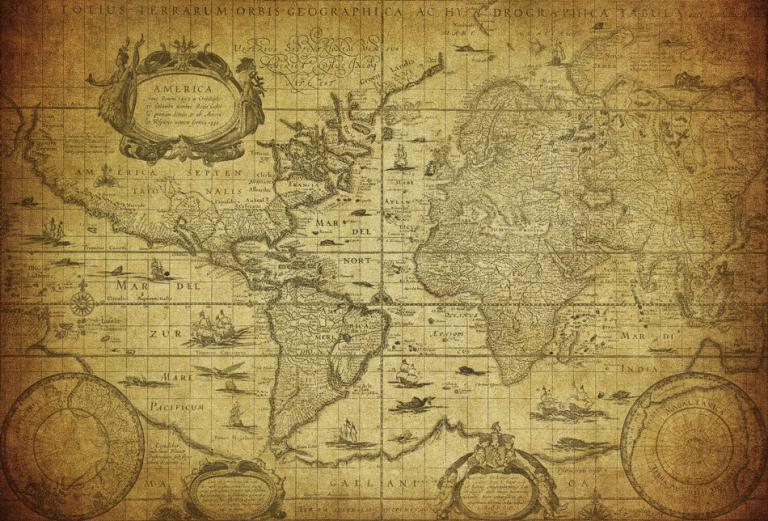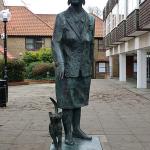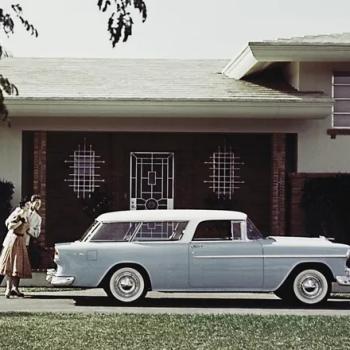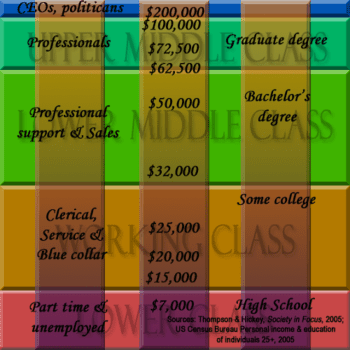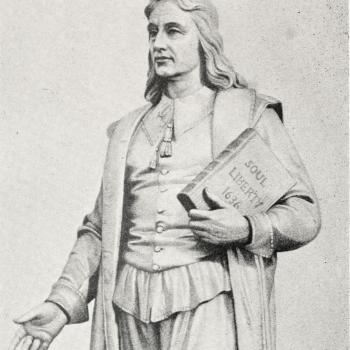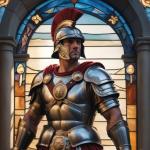A perennial challenge for historians, who are Christians, is the challenge of finding acceptance and approval from the wider academic community. Christians practicing history qua the historical science are often criticized for failing to approach their discipline from an objective, empirical, and critical viewpoint. George Marsden discusses this unique challenge throughout The Outrageous Idea of Christian Scholarship.[1] The secular historian, Bruce Kulick, echoes this concern as well, while dispelling the notion that critical historians operate solely from an empirical basis and outside of the influence of their social milieu.[2] Critical historians, too, have philosophical, social, and intellectual commitments that limit their assent to what, from the historical record, may be deemed as plausible or believable.
Historians, who are Christians, are presented with a second dilemma. They are tempted to write theology or religion rather than history. Gilderhus warns that history is “a different category of discourse.”[3] History studies the memory of the res gestae, the acts of humanity; it is the reflective science that researches the questions of what, when, where, how, and why humans acted; and it is the endeavor to understand these acts.[4] According to Marc Bloch, careful historiography relies on “the tracks,” primary documentary evidence and material culture, in order to detect the mentalitéof humanity over the longue durée. Bloch represents a tradition of historians, the Annales school, which collaborated with other social sciences to interpret the knowable world.[5] A Christian, who is a historian, maximally resists the temptation to drift into another discipline, and, minimally, demonstrates discretion and makes clear signals when putting on the hat of a theologian or philosopher.
Managing the tension of being a historian, who follows the acceptable conventions of the discipline, while also maintaining a Christian worldview, creates yet another conundrum. This involves the crisis of authority. Because the historical discipline has recently experienced political pressure and censure for how historians, en masse, have treated the subject of racial history, there has, in turn, been a parallel development of suspicion against the discipline of history, and other social sciences, in Protestant religious spaces. Scholars risk the accusation of having employed the technique of Critical Race Theory anytime their scholarly work has been perceived to undermine or critique institutional authority. Some Christian public intellectuals fear that practitioners of the disciplines of history and sociology believe their disciplines carry the same weight of authority and influence that traditionally have been allotted solely to the disciplines of theology and biblical studies within the Protestant tradition. This mood, while being an affront to the Vincentian Canon, reignites the Reformation debates concerning the distinctions between Protestants and Catholics on the authority of Scripture versus the authority of Church and tradition, and hints at a low-grade anxiety that another Oxford Movement lurks in the shadow of developments in twenty-first century American politics and society. The public discourse on these matters has rebooted a fundamentalist versus modernist binary that has put particular Christian Liberal Arts educational institutions into the limelight. These institutions have been accused of diluting and downgrading their biblical and theological fidelity at the expense of valuing diversity, equity, and inclusion.
Thus, Christians, who practice the social science of history, find themselves in a precarious position. However, two concepts may assist a historian to finesse through these dilemmas. The notions of limitation and imitation may be appropriated to describe two vital facets of the character of a historian, who happens to be a Christian.
A dangerous illusion that historians might convey to others is that they transcend the capacity of human limitation. Tracy McKenzie, in his Little Book for New Historians, alludes to this concept. McKenzie admits his memory is poor.[6] However, he indicates before this anecdotal comment that history is a discipline to be pursued with both awe and humility. Historians are imperfect creatures trafficking the memory of humanity’s acts to other imperfect creatures. Conveying both a sense of awe for the intricate and detailed story of history, as well as casting the story in a tone of humility, is crucial for a historian. Historical work is always subject to revision and reinterpretation. None of the offerings to the discipline are works cast in stone. To treat them as such is to construct an idol for worship. As Collingwood put it:
[There] is a peculiar illusion incidental to all knowledge acquired in the way of education: the illusion of finality. When a student is in statu pupillari with respect to any subject whatever, he has to believe that things are settled because the text-books and his teachers regard them as settled. When he emerges from that state and goes on studying the subject for himself he finds that nothing is settled.[7]
When historians, who happen to be Christians, convey a clear sense that they understand the Creator/creature distinction, that their historiography is subject to revision and it is not the final word on a topic, they undercut any accusation that they think their discipline ought to be treated with the same level of authority as Scripture. Of course, this same mentality applies to those biblical exegetes, who translate or interpret Scripture, or those ectypal, pilgrim theologians, who imperfectly attempt to convey the indiscernible, archetypal mind of God. I like how Richard Hughes puts this precept: “At the very least, I want my students to be acutely aware of their own limitations—and of my limitations. In that way, we know—I and they—that we have much to learn, and we can begin our journey together.”[8]
However, lest I leave the impression that historians, who are Christians in touch with the limitations of their humanity, have excuse to sully the quality of their historiography, the concept of imitation must augment the characteristic of limitation. While respecting the Creator/creature distinction is vital, it is crucial to underscore the importance of imitating the Creator. His creatures portray the Imago Dei and aspects of his image should be demonstrated by Christian historians. God is the most excellent being in the universe, and his excellence is worth imitation. Thus, offering excellence in scholarship is a meaningful manifestation of mimesis. While it is good to imitate God and copy his attributes, it is wrong to copy a colleague’s work or make use of it without attribution. Careful scholarship properly attributes sources and gives credit to the contributions of others. Likewise, similar to how the inner-life of the Divine exists in a Triune community, scholarship is best done in community rather than alone. Historical scholarship is a communal activity that welcomes collaboration and collegiality. As historians mimic God and his attributes, they become worthy of mimesis by students.
According to Breisach, the two key temporal experiences of human life are “relentless change with elements of continuity.”[9] The self-reflective activity of studying history is an invitation to make sense of continuities and discontinuities in the spatio-temporal experience of human existence; studying history attunes the senses to perspectives that differ from one’s own; it is a visit to whole worlds different from one’s own. Hegel was right that historical studies reflects upon the world as a whole. There is a world making and building aspect to the endeavor of historiography. Historians, who are Christians, have the opportunity to employ the notions of limitation and imitation, as they pursue this endeavor. These two dispositions, within the soul, support the generous and humble act of sympathetically learning from another time, place, or person’s perspective.
[1] George Marsden, The Outrageous Idea of Christian Scholarship (New York/Oxford: Oxford University Press, 1997).
[2] Bruce Kuklick, “On Critical History” in Religious Advocacy and American History, ed. by Kuklick and Hart (Grand Rapids: Eerdmans, 1997), 54–64.
[3] Mark T. Gilderhus, History and Historians (New Jersey: Prentice Hall, 2010), 29.
[4] R. G. Collingwood, The Idea of History (Oxford: Oxford University Press, 1946, 1993), 1–13.
[5] Marc Bloch and Lucien Febvre, “A Nos Lecteurs,” Annales D’histoire économique Et Sociale 1, no. 1 (1929): 1-2, http://www.jstor.org/stable/27572040; Marc Bloch, The Historian’s Craft (New York: Alfred A. Knopf, 1953.
[6] Tracy McKenzie, Little Book for New Historians (Downers Grove: Intervarsity Press, 2019), 32.
[7] Collingwood, The Idea of History, 8.
[8] Richard T. Hughes, The Vocation of a Christian Scholar: How Christian Faith Can Sustain the Life of the Mind (Grand Rapids/Cambridge: Eerdmans, 2005).
[9] Ernst Breisach, Historiography: Ancient, Medieval, and Modern, third edition (Chicago: Chicago University Press, 2007), 427.


